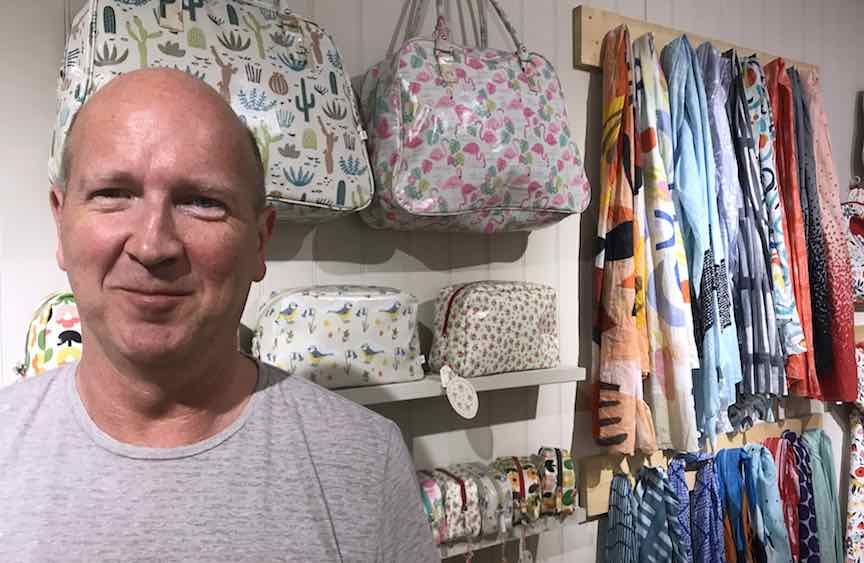
Taig Karanjia, chief operations officer of gifting business Rex London is creating a base on mainland Europe to minimise any disruption to his trade with EU nations post-Brexit
Has Brexit had an impact on your business to date?
So far no. We do some trade shows in Paris and Frankfurt, the two biggest ones in Europe, and interestingly just after the referendum, we saw a different reaction from the French and the Germans at those shows. The Germans were acting like we’d lost a relative and were saying we had big problems and were quite concerned about how they were going to trade with us. Whereas the French didn’t seem to mind at all and were oblivious to it.
Aside from that, we haven’t seen an impact. Our exports have grown in the last year and a half, but that’s up until now. We have four trade shows in January and February, three of which are abroad and if things are quite tense and undecided by then I think that’s when you might have some severe ramifications, because people are unlikely to want to order thinking ‘well am I going to have to be paying tax on this or import duties?’
Have you made any changes to your business in preparation for Brexit?
Yes. We design our products and we have them made in China, so we import everything into the UK from China. Then we export from the UK. Currently, 45% of our turnover is export and the majority of that is direct to Europe. We do export to Japan and Australia as well, but it’s Europe – France, Germany, Spain and Belgium – that is our key market. We have no alternative, but to create a base in Europe. Unlike some companies where they might have a handful of products and customs clearance would be quite straight forward, our product range goes to 2,700 lines, all of which will be liable to different types of regulations and will all have commodity codes as well.
As a result of Brexit, we’ve had to broaden out our options and we’ve set up a warehouse presence in Holland. We have warehouse space in Venlo and we have another warehouse that is being set up this week just outside of Amsterdam. From the warehouse close to Amsterdam we will sell directly to the Dutch and the Venlo warehouse is for our German business, as it’s right next to the border.
We also have a business address in Amsterdam so that we can set up a company very quickly, which will be the next step.
Why have you chosen Holland as your base on the European mainland?
We chose Holland because of its geographical location for distribution throughout Europe. Also from a point of view of setting up companies, Holland is a good deal easier than somewhere like France where the administration is quite arduous.
We are probably going to hold off until December before we set up the Dutch subsidiary company. At the moment we are setting up the structure so that we have the relationship with two different warehouses, then we have the facility to register our business and we can start that in December once it looks like it’s going to be absolutely necessary. We will then have to take larger warehouse space so that we can export our goods into Holland and only go through one set of customs clearance.
Our selling point to our customers is that we deliver within five working days. That is one of the reasons that we do well and we export very well. Not only do they like our products, they like that we are quick on delivery. That is a quick supply, particularly if you’re a business wanting to sell goods on, knowing when you’re going to get a delivery is important to you.
What support would you like to see the Government give to SMEs like yourself to help with the Brexit process?
I don’t think that there is anything that they can do because they are bound by their own interests and by much larger businesses. They are much more interested in the huge businesses like the services and the automobile industries than giftware companies. We are one of the many small businesses that fall outside the huge amount of pressure that the larger organisations put on the Government. They don’t have the time to deal with or be interested in small businesses.
Do you see anything positive coming out of Brexit?
Not in the industry that we are in. We already export to places like Japan and we’re very aware of the different regulations that are required to export to countries around the world. For example, we sell a packet of four paper straws and they come in four different colours – yellow, orange, purple and red – and we cannot export that to Japan because they don’t accept anything with a purple or red dye, which is related to food. There are little things like this which different countries have that mean when you are exporting the product lines like we are it becomes problematic. For a company like ours a big market is good for us, it’s easy to deal with and it’s very simple to trade with. The only option for us as a company is to go and have a presence in Europe and trade from Europe, because we can’t practically trade into Europe with this many products.



